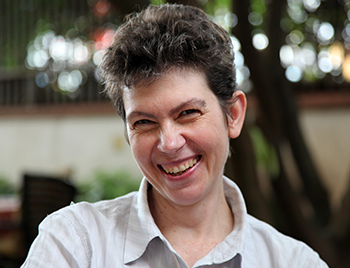Latest News Archive
Please select Category, Year, and then Month to display items

The University of the Free State (UFS) wishes to confirm that the following financial concessions have been made to enable students to register for the 2024 academic year:
- Students with confirmed NSFAS funding:
- Students with a confirmed National Student Financial Aid Scheme (NSFAS) funding allocation for 2024 with a debt of R20 000 and less may register fully without making any payments.
- First-time entering students (FTENS) with a confirmed NSFAS funding allocation for 2024 may register fully without any payments.
- Students with a confirmed NSFAS funding allocation for 2024 with a debt of R30 000 and less may register provisionally and pay the required fees* for provisional registration.
- South African self-paying (NON-NSFAS) students:
- SA students with a debt of up to R500 may register fully without making any payments.
- SA students with a debt of up to R30 000 may register provisionally and pay the required fees* for provisional registration.
- FTENS not on UFS funded list:
- Students who are not on the funded list but report that they have been approved on their portal must contact our
 Financial Aid Offices urgently so that the university can escalate to NSFAS.
Financial Aid Offices urgently so that the university can escalate to NSFAS.
The university will have continuous engagement with the National Financial Aid Scheme (NSFAS) to resolve outstanding matters. The university’s Financial Working Group (FWG) will meet regularly to determine how it can best assist students taking into consideration the financial constraints of the university.
UN-recognised scholar awarded the prestigious TRI Annual PhD Award
2015-11-09

Dr Anneli Botha, winner of TRI Award for Best Doctoral Thesis.
Photo: Supplied
|
Two years after enrolling as a PhD candidate in the University of the Free State’s (UFS) Department of Political Studies and Governance, Dr Anneli Botha was awarded the annual Terrorism Research Initiative (TRI) Award for the 'Best Doctoral Thesis on Terrorism and Counter-Terrorism' (2014).
The TRI PhD award is a prestigious international honour, while terrorism as a scholarly venture remains a concentrated field. Dr Botha, one of the few women in this niche field, has proved to be an excellent asset. Her winning of the prestigious award was announced in its October 2015 issue of Perspectives on Terrorism (PT), a globally-circulated online journal, co-published by the European-based Terrorism Research Initiative and the America-based Center for Terrorism and Security Studies.
Based on the merit and relevance of her outstanding research, the United Nations Development Programme has appointed Dr Botha as a Consultant on Radicalisation. In addition, her PhD is to be published as a book in the United States of America early in 2016. She was appointed as a Research Associate at the University of the Free State at the beginning of this year.
An award-winning search for answers
Her thesis, titled “Radicalisation to Terrorism in Kenya and Uganda: a Political Socialisation Perspective”, tackled East African militancy, from an individualised perspective. Researchers in the past have neglected assessing details of the rebels’ childhoods. Dr Botha’s interviewed about 285 militants and their families. These individuals declared themselves openly as members of al-Shabaab and the Mombasa Republican Council (MRC) in Kenya, and the Allied Democratic Forces (ADF) and the Lord’s Resistance Army (LRA) in Uganda, at the time of the interviews.
Her doctoral dissertation provides significant information about factors that should be considered in the quest to counter and prevent terrorism. Her research shows conclusively that political socialisation begins with the family, and expands through peers, school, media, and earlier political experiences, culminating in the terrorist group.
Outstanding piece of scholarship
Dr Alex Schmid, who is the editor of PT, TRI Award Jury chairman, and one of the most respected experts of terrorism, described Dr Botha’s research as an “outstanding piece of scholarship.”
Dr Botha attributed her success to her supervisors - Professors Theo Neethling and Hussein Solomon - as well as to the people in Kenya and Uganda.